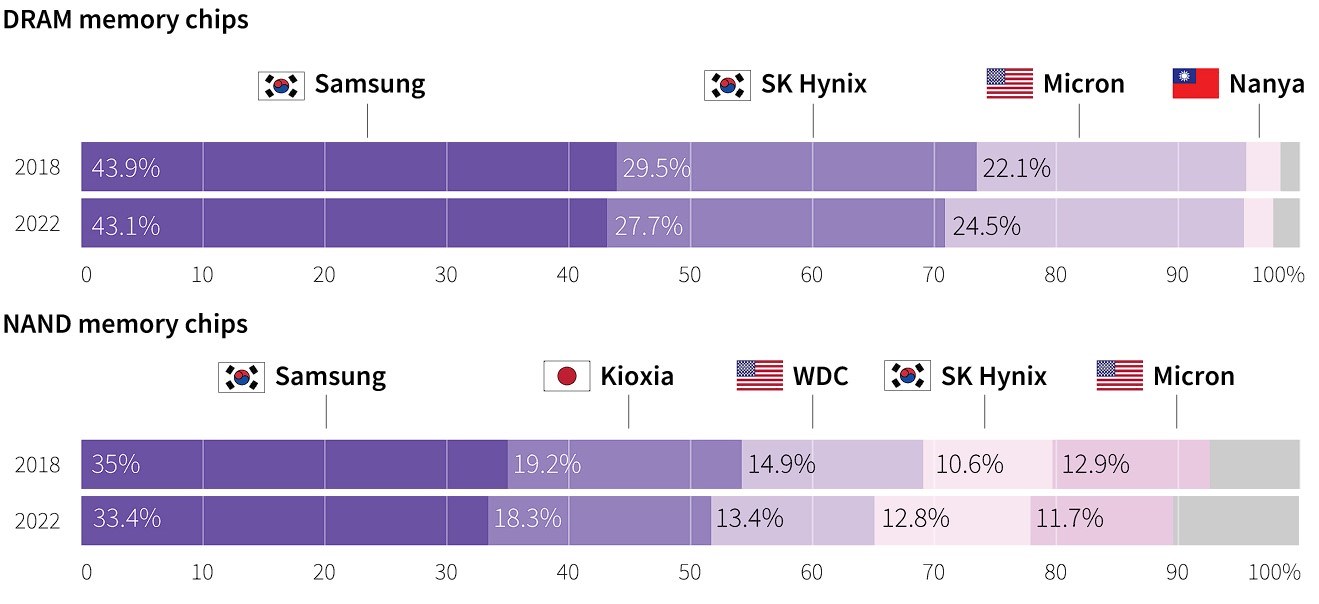 The global economic conditions we are in have had a particularly hard impact on Samsung, where most of its income comes from semiconductor and chip manufacturing. Samsung announced in a statement that the worst period in the global memory chip market is over, but plans to extend production cuts as the recovery in demand is largely limited to high-end chips used in artificial intelligence.
The global economic conditions we are in have had a particularly hard impact on Samsung, where most of its income comes from semiconductor and chip manufacturing. Samsung announced in a statement that the worst period in the global memory chip market is over, but plans to extend production cuts as the recovery in demand is largely limited to high-end chips used in artificial intelligence.Samsung’s move underscores the unprecedented semiconductor downturn, which has seen the South Korean firm suffer a record $7 billion in operating losses from its breadbasket chip business in the first six months of this year.
The global economic slowdown and high interest rates have dampened demand for most consumer goods after a pandemic-induced boom. “Demand is expected to recover gradually as industry-wide production cuts continue into the second half and customers continue to deplete (chip) stocks,” Samsung said in a statement.
target artificial intelligence
 Samsung’s chip division saw an operating loss of $3.4 billion in the April-June quarter from a profit of $7.8 billion a year earlier. Samsung lost about $3.6 billion in the first quarter, but demand for AI-driven DRAM helped stop the decline and ease some of the loss.
Samsung’s chip division saw an operating loss of $3.4 billion in the April-June quarter from a profit of $7.8 billion a year earlier. Samsung lost about $3.6 billion in the first quarter, but demand for AI-driven DRAM helped stop the decline and ease some of the loss.But analysts said Samsung is trying to catch up with SK Hynix, which is better prepared for AI-focused chip demand and leads the market in high-end DRAM chips like high-bandwidth memory (HBM) and DDR5 products used to feed data to AI chips. Frankly, although Samsung was the first company to produce these high-density chips, they could not predict that these markets would grow so fast and fell behind SK Hynix in terms of speed and efficiency.
Samsung said in a statement that it has received more than 1.5 billion gigabytes of HBM product orders this year (twice last year) and is working to increase its supply capacity. As we mentioned in our related news, Samsung lost 95 percent of its operating profit this quarter.